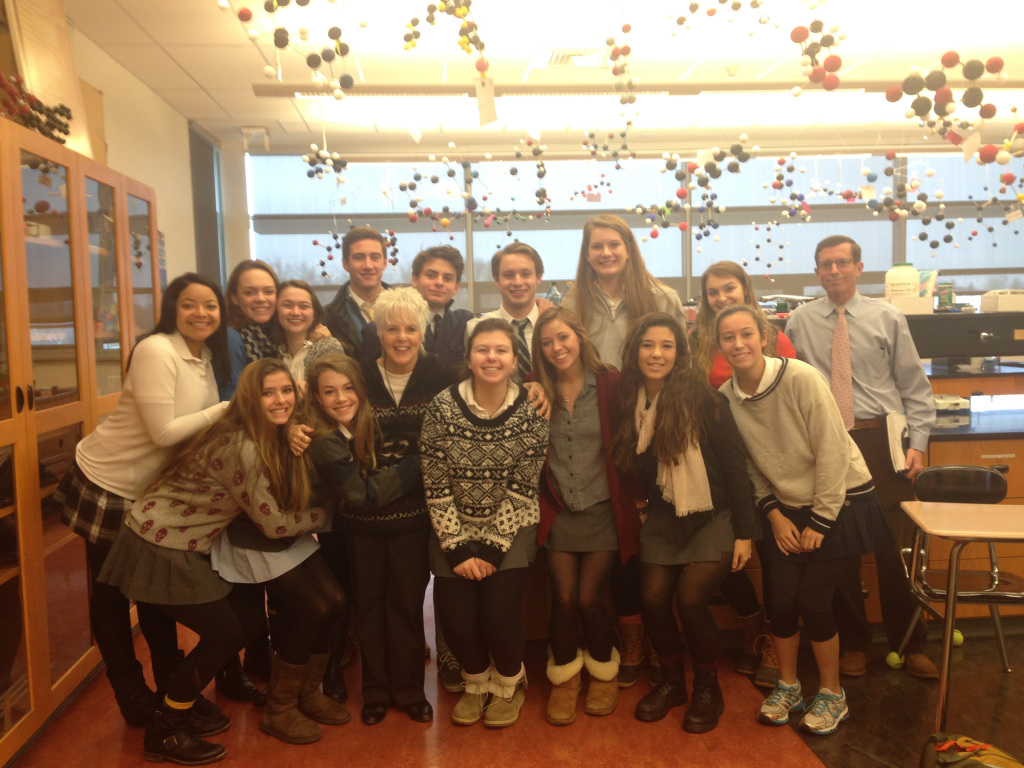Francis Lee ’16, Thomas Woodville ’17: Get Real About Social Problems, more commonly known as GRASP, is a club that remains a crucial part of EA’s student body. Substance abuse is a problem throughout high schools and colleges across the country, and it is clubs like this one that help students to become more aware of the ramifications of their actions.
George Wattles, faculty member of the club and Middle School Mathematics and Social Studies teacher, explained the change from Drug and Alcohol Awareness, to its current name. “When you hear Drug and Alcohol Awareness, you don’t gravitate to that particular club because you say it’s not you,” indicated Wattles. “The new name is more effective because it brings in a wider range of things that Upper Schoolers have experienced.” Lauren Brenner ’16, a student leader of GRASP also adds, “[GRASP] is also about the all-around social issues that affect our current lives hence why we switched the name to GRASP because most people were reluctant to join.”
Since freshman year Upper School students have been exposed to the topic of substance abuse and ways to deal with it. Yet many students, as Wattles pointed out, are not drawn toward this type of club, believing it to be irrelevant in their own lives. However, according to CASAColumbia’s National Survey on American Attitudes on Substance Abuse XVII: Teens, 86% of American high school students said that some of their classmates drink, smoke, and do drugs. An additional 44% of high school students said they knew a fellow student who sold drugs on school grounds. Of those drugs sold at school, 91% is said to be marijuana, 24% prescription drugs, 9% cocaine, and 7% ecstasy.

Courtesy of Corinne Kneizys ’16
Dr. Susan Rubin, another faculty adviser of GRASP and Upper School science teacher, and George Wattles put their full effort into providing a brighter future for students through this club. Rubin emphasizes that “It [GRASP] is in the interest of the kids. Our main role is to provide awareness and hope.” However, students continue to miss this opportunity. “Kids don’t want to get in trouble and an addict doesn’t want to stop,” Wattles explained. Nevertheless, it is important that students know if they approach someone within the school faculty about themselves or another student, they will not get in trouble, but rather help will be offered and it is guaranteed that the information one shares will not be divulged.
Morgan Lindblad ’16, a student leader of GRASP says that, “The purpose of GRASP is not to preach what students can or cannot do, but to raise awareness of the consequences of those decisions. As a club, it is our duty to influence the entire school to make better choices such as not to text while driving or what to do if you are in a precarious situation.” Wattles added, “I don’t think we need growth, we need constant awareness delivered to the community.”
Students have the habit of neglecting discussion regarding drugs and alcohol, but it is one of the last things teenage students should be ignoring. That is why clubs like GRASP are so important. They give us an opportunity to talk about the social pressures of society and the significance they have on our lives, whether it be drugs or alcohol or anything else. As Rubin stated, “If we can save one life out of a thousand kids, all the work that we have put in is worth it.”
Brenner expands upon on the problem that talking about these social problems “can be difficult when people treat these issues as jokes.” GRASP has invited yearly speakers to share their life stories and struggles to show how relevant social and abuse problems are in our community. So please take the time to understand the significance of these issues and take them seriously as faculty and student leaders push to make our lives better.